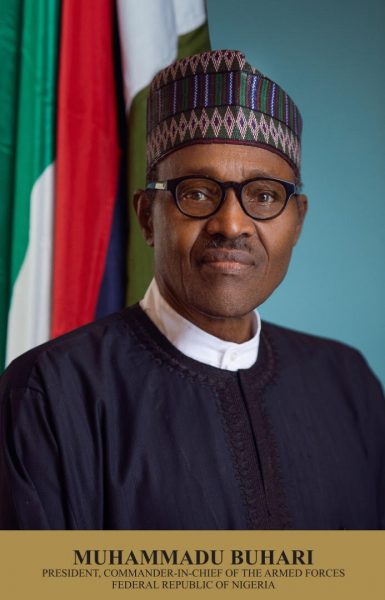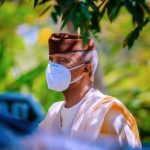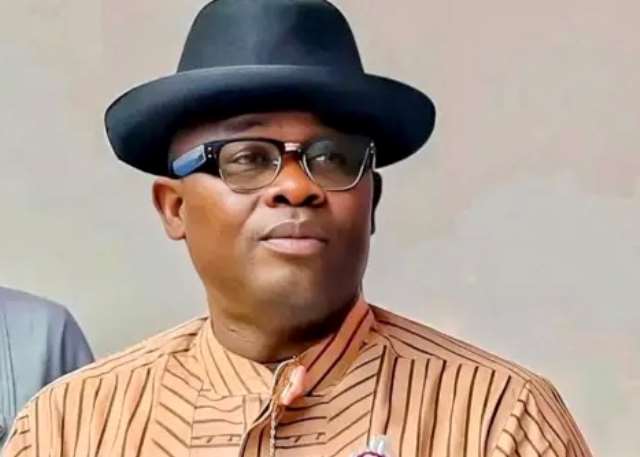Nigerians across the political divide and party affiliations or creed were euphoric, ecstatic and expectant as the retired Army General, ex-Head of State and politician, Muhammadu Buhari took office on May 29, 2015, as President and commander of the Nigerian Armed Forces, displaying intoxication and rapturous jubilation.
A public and enthusiastic display of approval had greeted the “Change Mantra” of the All Progressives Congress (APC) sloganeering which enchanted and ensorcelled the electorate who sacked a sitting president, Goodluck Jonathan and the 16-year-old rule and political dominance of the People’s Democratic Party (PDP) since the country’s transition from military dictatorship to democracy in 1999. An Army General and ex-Head of State, Abeokuta-born Olusegun Obasanjo took the helm on May 29, 1999 in Abuja, the nation’s capital.
The promises, programmes and manifesto of APC which are its charter with the people to provide good governance, fight poverty, corruption and restructure the country have been kept in focus from 2015 to date with particular attention on the outgone year, 2020.
Specifically, APC promised to restructure the political system with a view to ensuring that the basic tenets of democracy — free and fair elections, rule of law, separation of powers and independence of judiciary, free press, transparency and accountability etc — are scrupulously upheld.
No sooner than the President Muhammed Buhari-led administration took office that the tasks facing it assumed Herculean proportions as the economy slipped into recession, global crude oil prices also slumped while corruption and graft took the centre stage. All these and many more stymied the delivery of dividends of democracy to the people and meeting citizens’ expectations.
Persecondnews is taking a look at the good, the ugly and the bad in 2020 under the Buhari administration.
The administration rolled out a loan scheme for Small Medium Scale Enterprises (SMSE) with a view to tackling the worsening unemployment situation and give small business owners. It, however, put on hold or suspended trader money of between N10, 000 and N20, 000 which started ahead of re-election year in 2019.
The government also widened the nation’s tax net and reorganized the revenue generating agencies to boost revenue which has hit trillions of naira. The Nigeria Customs Service, for example, crossed the billion revenue mark to rake in over a trillion for the government while the Federal Inland Revenue Service (FIRS) targeted N8.5 trillion as collectable funds for 2020.
In the agricultural sector, it tried to diversify the nation’s economy from a mono-cultural one (oil) by providing the farmers’ grants, loans and improved seedlings. The Central Bank Anchor Borrowers Programme is also a boost to cassava and other food production. In a bid to protect the local rice farmers, the government banned importation of the commodity and said it shut the land borders to stop smuggling of arms and rice into the country.
On the country’s electoral system, President Buhari’s seeming “neutrality’’ in the Edo and Ondo polls is worth mentioning. While the ruling APC government lost the election in Edo to the opposition PDP. The incumbent Gov. Godwin Obaseki, formerly of APC, defected to PDP to run for second term when he was denied ticket by his predecessor and arch-rival, Adams Oshiomhole, in unnecessary dramatics and godfatherism implosion.
Expected in Ondo, the result went the way of APC with incumbent Gov. Rotimi Akeredolu (SAN) “coasting to victory’’, a result that the fiery rival, PDP’s Eyitayo Jegede (SAN), who had contested twice, had rejected as “massively rigged and characterized by vote-buying’’.
In the anti-corruption campaign which is a major policy thrust of President Buhari administration, it earned some praises.
For instance, while several billions of dollars from the Abacha loot starched away in other countries were repatriated. Also prominent politicians like Joshua Dariye, former Governor of Plateau State, Orji Uzor Kalu, ex-Abia State Governor, among others, were not only sent to jail through EFCC probe and prosecution, but forfeited their assets to the state.
Paradoxically, the hunter became the hunted as the Acting Chairman of EFCC, Ibrahim Magu, who was accused of corruptly enriching himself by collecting brides from those standing trial and “scandalously’’ appropriated seized properties of stealers of public funds, was probed by the Justice Ayo Salami-led panel set up by the Presidency in July 2020. Magu is still under suspension with another acting chairman in the helm.
In the area of provision of critical infrastructure, Buhari administration also fared a little well although lack or non-release of funds dogged the efforts. Construction of roads, standard rail gauge, bridges and others to make life better for the citizenry and facilitate ease of doing business, continued in the year with none of the projects completed.
The Lagos-Ibadan expressway which was flagged off by ex-President Goodluck Jonathan in 2013 at the Sagamu interchange is still ongoing while the East-West dual carriage of four-lane each has been conceived by the government to facilitate free movement of people, goods and services in the zone. It spans about 361 km cutting across Delta, Bayelsa, Rivers, Akwa-Ibom and Cross River states.
Persecondnews learnt that work is ongoing on the “landmark’’ Second Niger Bridge in the Southeast spanning about 1.6km with an initial cost of N336 billion, now raised to N414 billion, and completion date of 2022. as well as other roads in each of the six geo-political zones of the country.
Equally, the Chinese Government funded Lagos-Ibadan standard rail gauge scheduled for full delivery in 2020 was hindered by COVID-19 but the Ijoko-Agbado-Abeokuta-Ibadan corridor had been successfully test-run, a project scrupulously supervised by the energetic Transportation Minister, Rotimi Amaechi, who had promised inauguration of the “legacy’’ project by Buhari last year.
On international politics, in spite of the 2020 many upheavals, the government lobbied African countries and other nations to support the re-election of Dr Akinwunmi Adesina as the President of African Development Bank (AfDB) which was stoutly resisted by outgoing U.S. President Donald Trump, racking up unfounded and groundless corruption allegations and pro-Africa policies and support. Akinwunmi was, however, vindicated and cleared twice both by the board and independent probe panel. Nigeria’s Dr Ngozi Okonjo-Iweala’s candidature for the plum job of Director-General of the World Trade Organization (WTO) also got a big boost from Buhari administration international lobbying, again Trump put a spanner in the works to temporarily halt the emergence of the former Finance Minister and Coordinating Minister of the Economy.
On the economy, the various policies introduced by the administration were not far-reaching and efficient enough causing the economy shriveling. Inflation also gutted the economy and knocked the starch out of the government before it slumped into recession late last year.
A UK-based financial analyst and principal partner, Dion and Associates Ltd, punctured the policy of the government for he called subsuming the Ministry of Finance under the Central Bank of Nigeria (CBN) and therefore called for the decoupling the arrangement to give the apex bank redirection. He also criticized the foreign exchange policy of the Buhari administration which encourages federal, the 36 states and the 774 local governments to change Naira to the dollar without generating it through export and spend locally thereby putting pressure on local demands for dollar.
The closure of the nation’s land borders by President Buhari all throughout 2020, citing security reasons to stop arms smuggling into the country and discourage rice smuggling and protect local farmers, became antithetical to the economy as it hugely impacted the activities of business owners in the country. It also caused conspiracy by countries in the region to send our businessmen and women away from their lands since their home country had refused to do business with them.
Dr Oby Ezekwuezili, a former Minister, querried: “You close the border, precisely for what? Has this government evaluated the effect of that border closure on small businesses in this country? Does this government realize the damage it did to many sectors in this economy as a result of that singular act that just didn’t make any sense?”
But the Lai Mohammed, Minister of Information and Culture, said the country has been put on a sound economic footing, justifying land border closure and announced that 1, 375 migrants were arrested during the exercise and that the cross-border terrorists troubling the nation had been degraded as “only the remnants of the insurgents are struggling for relevance.”
Other stakeholders like Chamber of Commerce and Industry, clearing agents and Manufacturer’s Association of Nigeria (MAN) kicked against the indefinite closure. However, bowing to pressure from within and the international community, Buhari announced reopening of four of the land borders on January 1, 2021.
Nigeria’s humongous debt profile kept mounting in 2020. Currently, national debt has risen to an all-time high $84.57 billion dollars, while inflation rate stands at 14.31, according to the Nigeria Bureau of Statistics (NBS). Naira suffered several devaluations and is now being exchanged at N500 to a dollar.
The Debt Management Office also put total debt profile at N32.2 trillion as at the end of September 2020. The figure implies that the nation’s debt profile rose by N1.19trn between the second and third quarters of 2020.
According to a breakdown provided by the DMO on its website, the Federal Government’s total debt stood at N28trn as of September while the debts of the states and the Federal Capital Territory stood at N4.19trn. Further disaggregation of Nigeria’s public debt showed that the domestic debt is N20trn or 62.18 percent of the total debt while foreign debt is 37.82 percent.
The Minister of Finance, Budget and National Planning, Mrs Zainab Ahmed, had hinted that Nigeria’s total public debt may rise further by N6 trillion, hitting N38.68trn by December 2021 as a result of the borrowing spree of the Buhari government; set to borrow N4.28trn about one-third of 2021 N13.59trn budget to fund it.
On power supply, the government is still battling with generating about 5, 000 megawatts with the distribution companies’ incapacities of evacuating and distributing far less than the generated megawatts thereby resulting in nationwide load shedding, rationing and 15 hours of black-out in some parts of the country.
The government, after it announced that it had imported about six million prepaid meters and distributed to DISCOs to stop crazy, estimated bills to fleece and steal consumers’ money for electricity not supplied, the DISCOs had yet to meter all houses.
Stakeholders have asked Buhari to face the energy sector squarely and fully implement the spirit and the contents of the Power Sector Reform Act and the Reform Plan.
The scorecard of the administration on anti-corruption notwithstanding, some Nigerians believed that the government has gone the whole hog by trying serving public officials who are APC members and secure their convictions as exemplified by former President Olusegun Obasanjo during his tenure.
“Buhari government should apologize for pretending to be fighting corruption. It is a mess, it is a charade,’’ says Mr Kola Ayeye, ex-Managing Director of Assets Management Corporation. “We can’t make progress with the level of corruption in the country.’’
In the health sector, the magnitude of COVID-19 outbreak in 2020 had exposed the poor standards and dearth of the country’s health facilities at state and federal levels. The health facilities are just a little above “mere consulting clinics’’ as the rich and powerful still go abroad for medical tourism. It took the World Health Organization, China and some countries to donate equipment, testing centres and kits to examine suspected cases to Nigeria to be able to fight or contain coronavirus. It, however, consumed political, royal and academic personages in 2020 in the country including the Chief of Staff to President Buhari, Abba Kyari, former Governor of Oyo State, Abiola Ajimobi, Senator Buruji Kashamu, and the Emir of Rano, Dr Abubakar Tafida Il.
In education sector, an unprecedented and the year-long Academic Staff Union of Universities (ASUU) which began in March 2020 was unnecessarily allowed to linger for too long thereby denying Nigerian youths a whole year in their academic pursuits and destroying tertiary education in the country. A fall-out of which was restiveness and violent crimes among idle and jobless youths.
The October 2020 #EndSARS protest is one of the fall-outs of the prolonged ASSU strike; the protest, the biggest in the annals of the country shook the cities and almost brought the nation to its knees with devastations carried out by hoodlums that hijacked the protest. The October 20, 2020, Lekki Toll plaza, Lagos, shooting by soldiers mobilized to the venue of the protest by the Lagos State Government and the Federal Government caused the hitherto several weeks peaceful protests to turn bloody with yet to be ascertained the number of fatalities.
Apart from loss of lives and killing of some policemen, corporate bodies, individuals as well as the Lagos State Government lost properties put at over a trillion naira to the upheaval in protest of the killings at the Lekki Toll plaza by armed soldiers.
On rule of law, the Buhari government performed below par in 2020 as rated by a Senior Advocate of Nigeria, Chief Mike Ozekhome, who accused it of a lack respect for the rule of law as it flouted court rulings and judgments with impunity.
On the issue of insecurity, Nigerians suffered a great deal in the hands of terrorists, insurgents, bandits, herdsmen and kidnappers with renewed wave in 2020 which claimed scores of lives. In December, more than 300 school boys were abducted in Kankara, Kastina State the day President Buhari visited his home state but were luckily rescued by the military. No fewer than 69 farmers were brutally murdered on their farms by Boko Haram jihadists in Borno State, the epic centre of insurgency in the Northeast.
On the strength of the deteriorating security situation, the National Assembly invited the president to appear before it to brief the lawmakers on the situation but the Buhari shunned the invitation.
On the parlous security situation, Afenifere spokesman, Mr Yinka Odumakin, said Nigeria has now turned to an animal zool and Hobbesian state of nature where human lives is “nasty, brutish and shortish.”
Calls by well-meaning Nigerians, governors, the leadership of the National Assembly and socio-cultural organizations for the sack of service chiefs were also ignored and shrugged off by President Buhari even when they ought to have retired some years ago.
























Leave a comment